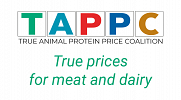Eating meat increases risk of diabetes
Researchers at the University of Cambridge conducted a large-scale international study on the relationship between meat consumption and the risk of developing type 2 diabetes. Previous research had already suggested a link between meat consumption and this form of diabetes, but those findings were mainly based on studies of European and North American populations. The Cambridge researchers broadened the scope by studying nearly 2 million people from 20 different countries — the largest study on this subject to date.
Participants provided information about their eating habits and medical records. The researchers focused on three types of meat: red meat, processed meat, and poultry. It was expected that red and processed meat would have the most significant negative impact on the development of type 2 diabetes. This was indeed the case: consuming 50 grams of processed meat daily (about two slices of ham) increases the risk of this form of diabetes by 15 percent over the next ten years. For red meat, a daily intake of 100 grams increases the risk by 10 percent. Interestingly, the consumption of poultry also appeared to increase the risk by 8 percent with a daily intake of 100 grams.
The Cambridge researchers consider their study a starting point for further research on the relationship between meat consumption and other non-communicable diseases and multimorbidity. They also see it as an encouragement to contribute to human and planetary health through sustainable dietary patterns.
Previous research commissioned by TAPP Coalition
In 2023, Wageningen University & Research (WUR) published a study commissioned by the TAPP Coalition and the Vegetarian Association on the relationship between (over)consumption of meat and health damage. This study found that the overconsumption of red and processed meat leads to 153,000 type 2 diabetes patients annually: nearly 14% of the 1.1 million Dutch diabetes patients. The total annual cost of diabetes in the Netherlands amounts to 1.3 billion euros. Overconsumption of meat also leads to an increased risk of other diseases, such as colorectal cancer and cardiovascular diseases. If all societal health costs were reduced to a tax per kilogram of meat, red and processed meat would become significantly more expensive.
See also the PowerPoint presentation by TAPP Coalition on this topic.


